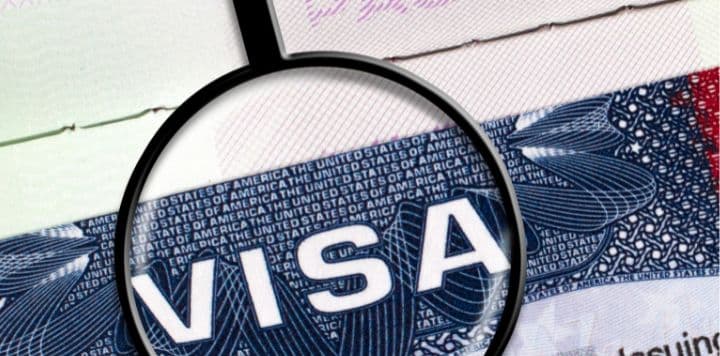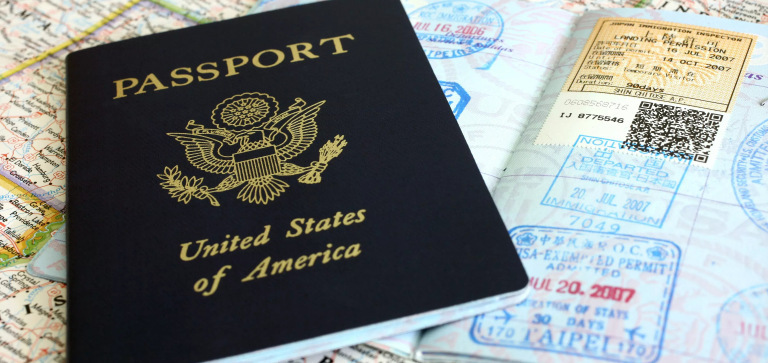Introduction
If you’re planning to visit Canada and have a criminal record, you might be wondering if it’s even possible to get an Electronic Travel Authorization (eTA). The good news is that having a criminal record doesn’t automatically disqualify you from obtaining an eTA. In this guide, we’ll walk you through everything you need to know about getting a Canadian eTA with a criminal record. We’ll cover the steps involved, the necessary documents, and some tips to increase your chances of a successful application. how to get a canadian eta with a criminal record
What is an eTA?
An Electronic Travel Authorization (eTA) is a mandatory entry requirement for visa-exempt foreign nationals traveling to Canada by air. It’s electronically linked to your passport and is valid for up to five years or until your passport expires, whichever comes first.
Definition and Purpose
The eTA is designed to screen travelers before they enter Canada, ensuring that they meet all the entry requirements. It helps the Canadian government maintain security and manage immigration efficiently.
Eligibility Criteria
To be eligible for an eTA, you must be a citizen of a visa-exempt country, have a valid passport, and plan to travel to Canada for short-term visits, such as tourism or business. However, having a criminal record can complicate the process.
Impact of a Criminal Record on eTA Eligibility
Types of Criminal Records Considered
Not all criminal records are treated equally. The nature of your offense, how long ago it occurred, and your behavior since then all play a role in determining your eligibility. canada advance cbsa declaration
How Criminal Records Affect Eligibility
A criminal record can affect your eligibility for an eTA in several ways. Minor offenses may be overlooked, but serious crimes, particularly those involving violence or repeated offenses, can pose significant obstacles.
Steps to Apply for an eTA with a Criminal Record
Applying for an eTA with a criminal record involves several steps. It’s crucial to be thorough and honest throughout the process to avoid complications.
Gather Necessary Documents
Before you begin your application, gather all necessary documents. This includes your criminal record certificate, court documents, and any police reports related to your offenses. Additionally, a personal statement explaining your circumstances can be helpful.
Detailed Application Process
- Visit the Official Website: Go to the Government of Canada’s official eTA application website.
- Complete the Application Form: Fill out the form accurately, making sure to declare your criminal record.
- Upload Supporting Documents: Attach all required documents to support your application.
- Pay the Fee: Submit the application fee, which is usually around CAD $7.
- Submit the Application: Review your application carefully before submitting it.
Gathering Required Documents
Criminal Record Certificate
Obtain a copy of your criminal record from the relevant authorities in your home country. This document is essential for the application process.
Court Documents and Police Reports
Gather any court documents and police reports related to your offenses. These documents provide detailed information about your criminal history and help the authorities make an informed decision.
Personal Statement
A personal statement can help explain the context of your criminal record. Be honest and explain how you’ve changed since the offense occurred.
Filling Out the eTA Application Form
Accurate Information Submission
Ensure that all information provided in the application form is accurate. Any discrepancies or omissions can lead to delays or denial of your application.
Declaring a Criminal Record
You must declare your criminal record in the application form. Failing to do so can result in your eTA being denied or revoked.
Additional Information Required
Providing Details on the Criminal Record
Provide detailed information about your criminal record. This includes the type of offense, the date it occurred, and any rehabilitation measures you’ve taken since then.
Supporting Documents
Upload all supporting documents, including your criminal record certificate, court documents, and personal statement. These documents help the authorities understand your situation better.
Submitting the eTA Application
Reviewing the Application
Before submitting your application, review all the information and documents carefully. Ensure that everything is accurate and complete.
Submitting Online
Submit your application online through the official eTA application website. Once submitted, you’ll receive a confirmation email.
Post-Submission Process
Receiving Confirmation
After submitting your application, you’ll receive a confirmation email. This email will contain your application number and instructions on what to do next.
Potential Follow-Up Requests
The Canadian authorities may request additional information or documents. Be prepared to provide any further details they may require.
What to Do if Your eTA is Denied
Understanding the Reasons
If your eTA application is denied, it’s important to understand the reasons. The authorities will usually provide an explanation for the denial.
Steps to Reapply
If your application is denied, you may be able to reapply. Address the reasons for the denial and provide additional information or documents to support your new application.
Seeking Legal Advice
When to Consult an Immigration Lawyer
If you’re having trouble with your eTA application due to a criminal record, consider consulting an immigration lawyer. They can provide valuable advice and assistance.
How a Lawyer Can Help
An immigration lawyer can help you understand the legal aspects of your application, assist in gathering necessary documents, and represent you in case of any legal issues.
Tips for a Successful eTA Application
Honesty is Key
Always be honest in your application. Providing false information can lead to serious consequences, including being barred from entering Canada.
Provide Comprehensive Information
Ensure that you provide comprehensive and accurate information about your criminal record and any rehabilitation measures you’ve taken.
Frequently Asked Questions About eTA and Criminal Records
Common Concerns and Misconceptions
Many people have concerns and misconceptions about how a criminal record affects their eTA application. Addressing these can help you understand the process better.
Real-Life Experiences
Stories from Applicants with Criminal Records
Hearing from others who have successfully obtained an eTA despite having a criminal record can provide valuable insights and encouragement.
Conclusion
Applying for a Canadian eTA with a criminal record can be challenging, but it’s not impossible. By following the steps outlined in this guide, being honest, and providing comprehensive information, you can increase your chances of a successful application. Remember, the key is to be thorough and transparent in your application process.
FAQs
- Can I apply for a Canadian eTA if I have a criminal record? Yes, you can apply for a Canadian eTA if you have a criminal record. However, the nature of your offense and other factors will be considered during the application process.
- What types of criminal records affect eTA eligibility? Serious crimes, particularly those involving violence or repeated offenses, can significantly affect your eTA eligibility.
- How can I increase my chances of getting an eTA with a criminal record? Be honest in your application, provide comprehensive information about your criminal record, and gather all necessary supporting documents.
- What should I do if my eTA application is denied? If your eTA application is denied, understand the reasons provided by the authorities and consider reapplying with additional information or documents.
- Is it advisable to consult an immigration lawyer for my eTA application? Yes, consulting an immigration lawyer can be beneficial, especially if you have a complex criminal record. They can provide valuable advice and assistance throughout the application process.



